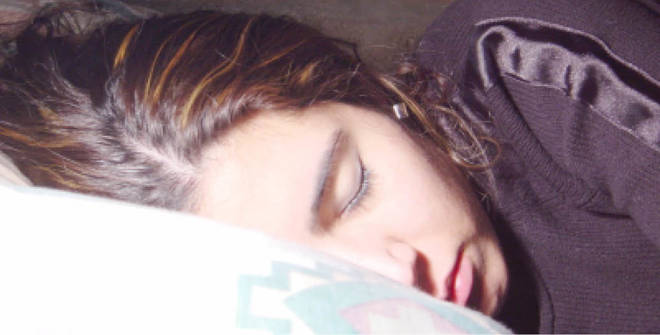Sleeping during weekends may not repay sleep ‘debt’
People who are sleep-deprived during the week often try to make up for it on weekends, but a new study suggests the tactic may backfire. Researchers found that weekday sleep loss had negative effects on people’s metabolism and “catch-up” sleep on the weekend did not reverse it. Kenneth Wright, a professor at the University of […]

People who are sleep-deprived during the week often try to make up for it on weekends, but a new study suggests the tactic may backfire.
Researchers found that weekday sleep loss had negative effects on people’s metabolism and “catch-up” sleep on the weekend did not reverse it.
Kenneth Wright, a professor at the University of Colorado, Boulder and senior author of the study said, in fact, there were signs that the extra weekend shut-eye could make matters worse.
He added that the bottom line is that people need to consistently get sufficient sleep.
“If you want to lead a healthy lifestyle, that has to include good sleep habits,” he stated.
The study, published in the journal Current Biology, included 36 healthy young adults. They were randomly assigned to one of three groups that all spent nine nights in the sleep lab.
Experts recommend that adults get seven or more hours of sleep each night for the sake of their overall health. Yet, studies show that more than one-third of adults fall short of that goal.
According to Dr. Phyllis Zee, a sleep specialist and professor at Northwestern University School of Medicine, Chicago, we tend to buy into the myth that by ‘catching up’ on sleep on weekends, we will reverse the adverse effects of repeated sleep loss.
However, Zee, who was not involved in the new research, stated that, “the results of this study support that it is indeed a myth. In fact, even the muscle and liver ‘remember’ the adverse and persistent effects of sleep loss.”
Wright also said that real life can get in the way of optimal sleep but added that people should take an honest look at their habits and see if they can make time for a good night’s sleep.
“What are the ‘sleep stealers’ in your life?” Wright said. “Are you up late watching TV or on your computer?”
Late-night “screen” use is a problem not only because it takes time away from sleep, he pointed out: Staring at a blue light before bedtime can actually disrupt your ability to fall asleep.
He said sleep is vital for a range of body processes, not only metabolism. He said there was evidence that other effects of chronic sleep loss including dampened alertness and mental performance cannot be erased with a couple of nights of catch-up sleep.
“Regularity in both timing and duration of sleep is key to brain and body health,” he added.
